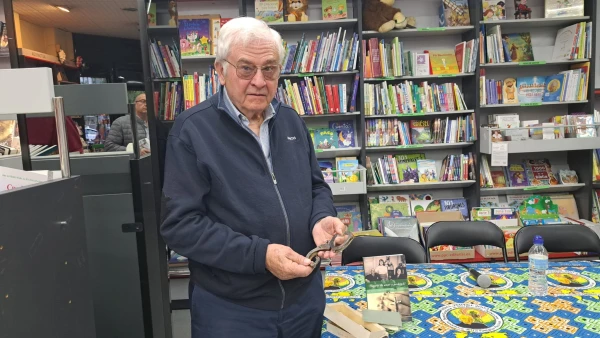Spain has 3,500 martyrs of religious persecution of the 20th century beatified and another 4,000 could be raised to the altars in the same way in the coming years, according to Father José Carlos Martín de la Hoz, a priest who is an expert in these processes.
“A few months ago, at the direction of the Dicastery of the Causes of Saints, a survey was carried out, speaking with all the delegates of the Causes of Saints from all the bishoprics, and a survey of another 4,000 possible beatifieds was carried out,” has assured.
Receive the main news from ACI Prensa by WhatsApp and Telegram
It is increasingly difficult to see Catholic news on social media. Subscribe to our free channels today:
“When this work is finished, which we are going to finish in four years, there will be 7,500 martyrs, blessed on our altars,” explained Father Martín de la Hoz, director of the Office of the Causes of the Saints of Opus Dei.
This was expressed during the presentation of the book in Madrid Homes of love and forgiveness IIpublished by the Association Rooted in Christ, which collects the testimony of 23 families who were marked by the dedication and fidelity of their members until they gave their lives.
Father Martín de la Hoz stressed that “the most impressive thing is that those 7,500 martyrs, blessed, their martyrdom is documented, that is, that they died out of hatred for the faith and it is documented that they died forgiving.”
In his intervention he also detailed that “the first dicastery that is opened in Christianity, in the Church, is the Dicastery of the Causes of Saints”, as proven in the Acts of the Apostles, where it was reflected that “the first decision “What the Church takes is to keep the memory of the martyrs.” Not in vain, during the time of the first Christians, “Mass was celebrated on the tombs of the martyrs,” he added.
Origin of religious persecution in Spain in the 20th century
Father Martín de la Hoz explained how the study of the causes of the martyrs of the 20th century requires considering that “everything began in the Cortes of Cádiz”, in 1812, whose Constitution begins saying “in the name of the Father, the Son and of the Holy Spirit, but then what establishes and marks is what was called liberalism.”
During the 19th century, “the progressive liberals and the conservative liberals alternated in power, but in the end what united them was a very violent persecution against the Church. It is as if all the Enlightenment and the French Revolution that had happened in the center of Europe, suddenly appeared in Spain.”
“This hatred that occurs, that spreads, that is constant and continuous, permeates” the layers of intellectuals, workers, in the countryside until reaching the times of the Second Republic (1931-1936), he said. .
The outbreak of the Civil War was, in the expert’s view, “the emergence of something that was already going on, because it had been explained for a century. That is why it is very important to return to the memory of the martyrs, because they are the ones who will help us rebuild a united society.”
An example of forgiveness
Among the testimonies of forgiveness collected in Homes of love and forgiveness IIthere is the one offered by Luis García Chillón, who remembers his uncle Hermenegildo Chillón Cabrera, martyred in Talavera de la Reina (Toledo, Spain).
Mere, as he was known locally, was a town surveillance agent and at the age of 29 he was dismissed by Mayor Francisco Cancho, a member of the Popular Front. One night in February 1936, twenty men beat him up and left him half dead.
He spent 12 days in the hospital and, when he left, he tried to recover in Tarancón, province of Cuenca. After the start of the war in July 1936 they went looking for him to imprison him in the convent of the nuns known as “ildefonsas”. It was August 22.

After a summary trial by the so-called “popular committee”, he was taken from the place in handcuffs, a cowbell was hung around his neck while they deliberated whether to burn him or shoot him. Finally they take him to the place of his martyrdom. Before dying, he asked his executioners to give his wallet to his mother with these words: “Give her a hug and another for yourself, so that you can forgive me if I missed you in anything.”
His nephew Luis believes that “at the moment of truth, when these words are said, they are felt deeply and represent a tremendous greatness of spirit.” From them he deduces, even though he did not know his uncle, “that this man forgave those who were martyring him.”
For him, “this demonstrates a unique greatness of heart” and makes it clear that, regardless of the religious practice his uncle had, “the blood of the martyrs cleanses everything, heals everything.”
Furthermore, remember that “in my uncle Hermenegildo’s family there was never talk of hatred or resentment” and that currently the relatives of the martyrs “have no desire to pass any bill or any desire for revenge or anything like that. But we cannot allow them to be forgotten either.”
